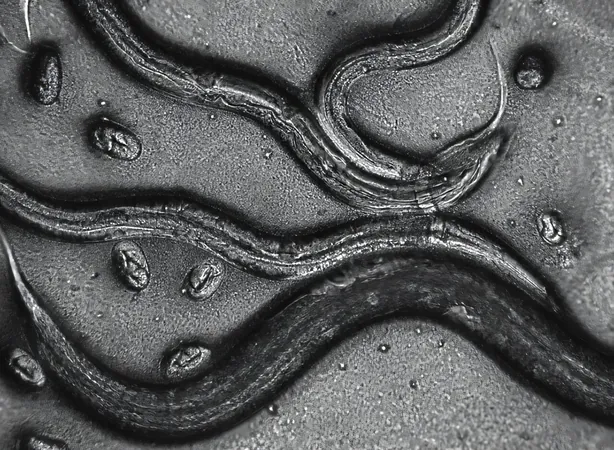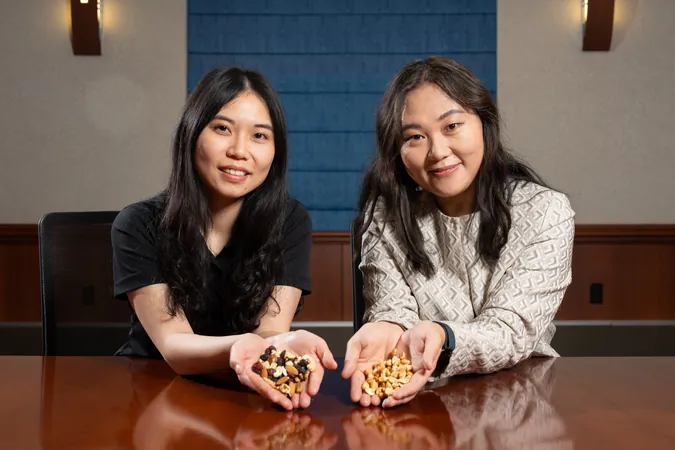
Could One Single Gene Hold the Key to 30 Unknown Medical Mysteries?
2024-11-18
Author: Ming
Could One Single Gene Hold the Key to 30 Unknown Medical Mysteries?
A groundbreaking study has unveiled a startling connection: a single gene mutation may be responsible for a staggering 30 elusive medical conditions. Researchers diving deep into a rare disorder identified in one patient have unraveled a complex web of symptoms that range from developmental delays to bone malformations, and even early mortality.
The gene in question, known as FLVCR1, plays a critical role in the transport of essential nutrients—choline and ethanolamine—within our cells. These nutrients are pivotal for metabolic processes, which are vital for our bodies to generate energy, explains Dr. Daniel Calame, the study's lead investigator from the Baylor College of Medicine in Texas.
Dr. Calame highlighted how the extensive expression of FLVCR1 throughout various tissues could result in a broad spectrum of health issues depending on the severity of the nutrient transport deficiency. “With that in mind, the range of problems we observe makes perfect sense,” he states.
The story began with a boy treated at Texas Children's Hospital, who presented unique challenges: he suffered severe developmental delays, frequent seizures, and notably, a complete inability to feel pain. While such symptoms often occur together, the pain insensitivity was particularly rare. Despite previous genetic tests failing to pinpoint the cause, a subsequent analysis by Calame’s team revealed an uncommon mutation in both copies of the FLVCR1 gene.
Intriguingly, FLVCR1 was already connected to various neurological and degenerative diseases. The researchers were wary, however, as the symptoms associated with these disorders varied greatly from those observed in their patient. Still, some overlap existed, especially concerning diminished pain sensitivity.
Drawing insights from studies conducted on animal models, where the absence of FLVCR1 led to severe developmental issues—including stillbirths marked by bone and brain malformations—Calame and his team were determined to find out more. By accessing their extensive genetic database housing DNA from over 12,000 individuals, they identified 30 more patients from 23 families with mutations in the FLVCR1 gene. Of the mutations uncovered, 20 were completely novel, suggesting a broader prevalence of this genetic link than previously understood.
Among these 30 patients, several faced tragic outcomes, including stillbirth due to severe in-utero complications. Others survived but battled a variety of developmental challenges, microcephaly, and skeletal deformities.
To further comprehend the implications of FLVCR1, Long Nam Nguyen, one of the study’s co-authors from the National University of Singapore, conducted lab experiments. His findings related to the gene's crucial role in nutrient movement within cells provided significant insights into how a single mutation could lead to diverse and devastating health issues.
With this knowledge, Calame and his collaborators are now initiating blood sample collections from affected individuals to explore potential therapies. One avenue they are investigating is the supplementation of choline and ethanolamine, which could ameliorate some symptoms. Alternatively, they may require pharmacological interventions to mitigate toxic buildups caused by disrupted cellular functions.
The implications of this research extend far beyond these rare conditions. Choline, derived from foods such as leafy greens and animal products, has been linked to age-related neurological deterioration and disorders like Alzheimer’s disease. “This discovery opens the door to understanding how a single genetic anomaly can reverberate across various health issues,” Calame emphasizes, underscoring the far-reaching potential of this groundbreaking research.
Prepare yourself to rethink your understanding of genetics and health, because these findings could redefine medical treatments for conditions we thought were unrelated!




 Brasil (PT)
Brasil (PT)
 Canada (EN)
Canada (EN)
 Chile (ES)
Chile (ES)
 España (ES)
España (ES)
 France (FR)
France (FR)
 Hong Kong (EN)
Hong Kong (EN)
 Italia (IT)
Italia (IT)
 日本 (JA)
日本 (JA)
 Magyarország (HU)
Magyarország (HU)
 Norge (NO)
Norge (NO)
 Polska (PL)
Polska (PL)
 Schweiz (DE)
Schweiz (DE)
 Singapore (EN)
Singapore (EN)
 Sverige (SV)
Sverige (SV)
 Suomi (FI)
Suomi (FI)
 Türkiye (TR)
Türkiye (TR)